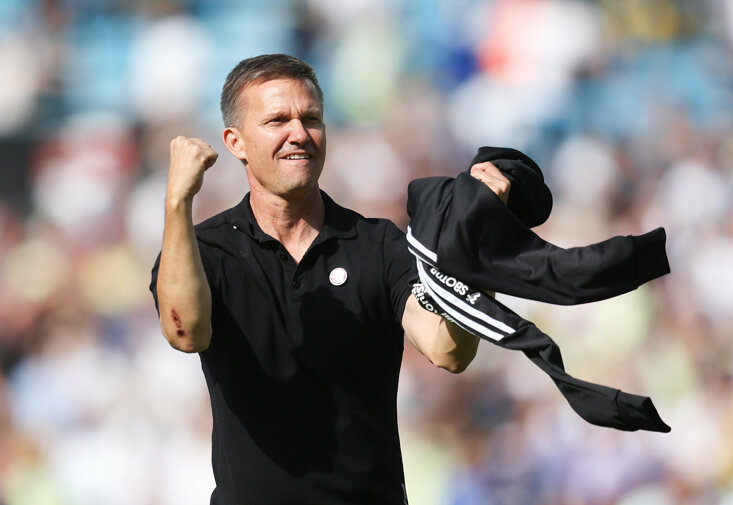Jesse Marsch was sacked by Leeds United on Monday. It was a decision that came as little surprise to most. There was a widespread acceptance that the outgoing manager was not performing well enough to keep his job. Contrast this with the reaction a year earlier, when predecessor Marcelo Bielsa was let go. A beloved symbol of revival and rejuvenation at Elland Road, the iconic Argentine’s departure was bittersweet, even for those who supported it.
It is the shadow of Bielsa that Marsch has laboured under for his entire tenure. Following a totemic figure such as the 67-year-old master tactician is never easy. Just ask David Moyes or Unai Emery. The sudden nature of Bielsa’s departure didn’t help. Fans had not been conditioned to expect an end to the reign of a manager who had brought Leeds their greatest success in two decades. When the charismatic coach was removed, it left many fans with a profound and unexpected sense of loss.
Of course these feelings can quickly be eradicated by an upturn in form. For all his achievements, Bielsa had Leeds in 16th when he was dismissed. A considerable regression from a ninth-place finish in his first Premier League season, there was a prevailing feeling that the magic was beginning to wear off.
Bielsa demands a very physical, gruelling style of fitness-first soccer from his players. Eventually this wears on a team, driving them to breaking point. It is reasonable to suggest this point had been reached, particularly when you consider Leeds was the longest tenure Bielsa has enjoyed at a single club. Given the physicality he demands from his teams, there was always going to be a point of no return.
But it does feel like the Leeds hierarchy should have budgeted for this a little better. Particularly when it initially looked like they had done exactly that. Jesse Marsch was not a name plucked from thin air to replace Bielsa. He was in fact the heir apparent. The Athletic reports that director of football Victor Orta had circled Marsch as the ideal Bielsa replacement based on his time at RB Salzburg. But the timing of the transition actually did more harm to Marsch than it did to the man he replaced.

Bielsa emerged unsullied by a season that could have led to relegation with him at the helm. He departed as a hero, with Marsch now carrying the can for the wider problems at Elland Road. The American kept the Whites up, but the fact he did so in 17th, a place lower than Bielsa had left them in, did not bode well. The fact they sat in an identical position nearly a year later led to Marsch’s sacking.
Had Orta and the board held onto Marsch as their initial long-term solution, things could have been a lot different. Particularly at a time of flux for the club. Had Leeds gone down, you could argue Bielsa would have been best-placed to keep them up. But given the fact he was actually doing better than the man who replaced him, you can also believe he would have kept them up anyway.
At that point, a summer transition period would have allowed Marsch to get his own players in and bought him time to instil his ideas. Leeds would have been well-fixed for an evolution in the dugout. But the suddenness of the move, the late-season reset and the prevailing sense that Marsch was an inferior version of what went before eventually consumed Bielsa’s successor. Efforts were made to right the ship, and Marsch was given money to spend. But he had already been undermined. Ultimately, his force of will was not enough to get out from under the shadow of Bielsa.
The next manager will be unencumbered by such concerns. The poisoned chalice has been supped dry by another. Whoever replaces Marsch will not suffer under those same Bielsa comparisons. Unless of course 8/1 shot Marcelo Bielsa comes to retake the throne. Then the Argentine may find out how tough an act he is to follow.
*18+ | BeGambleAware | Odds Subject To Change